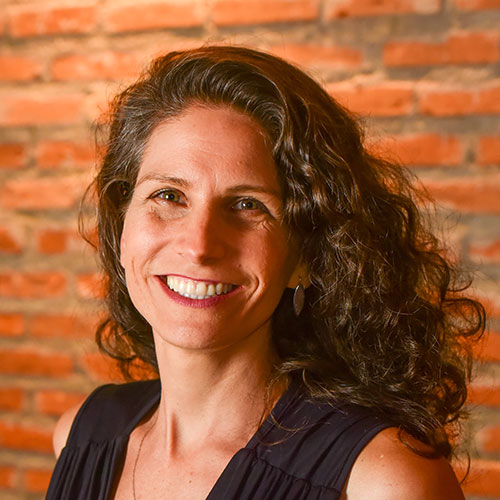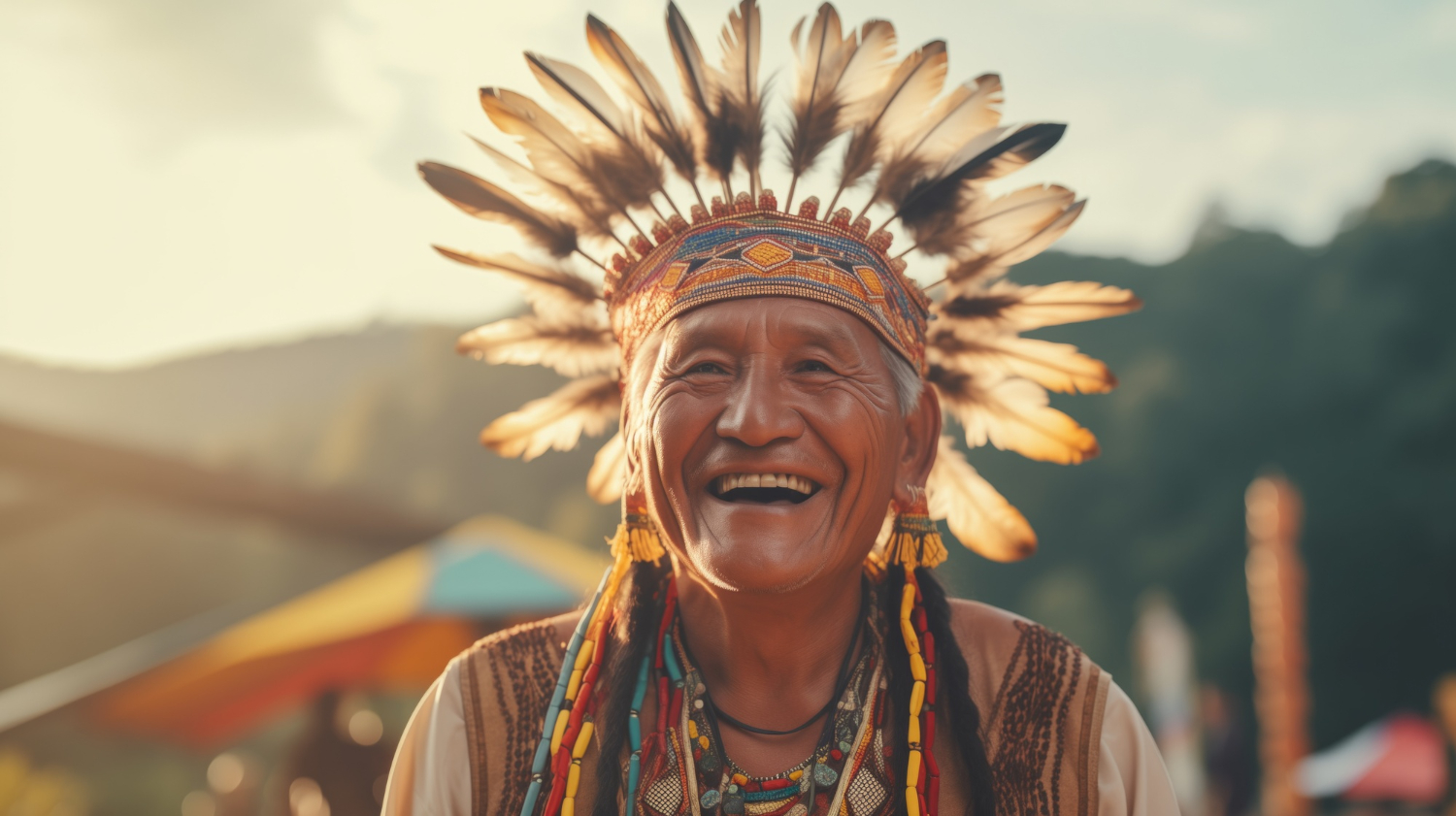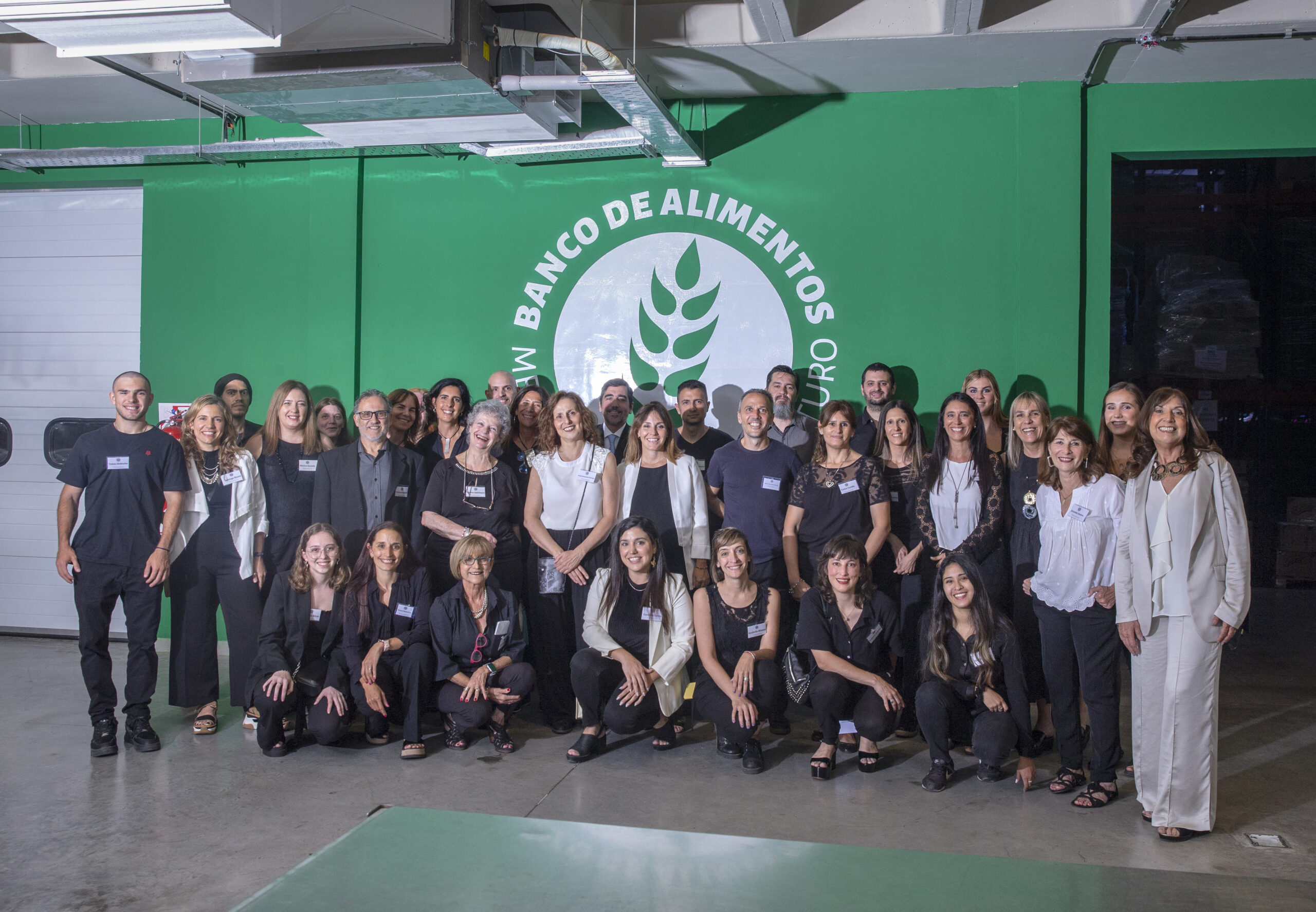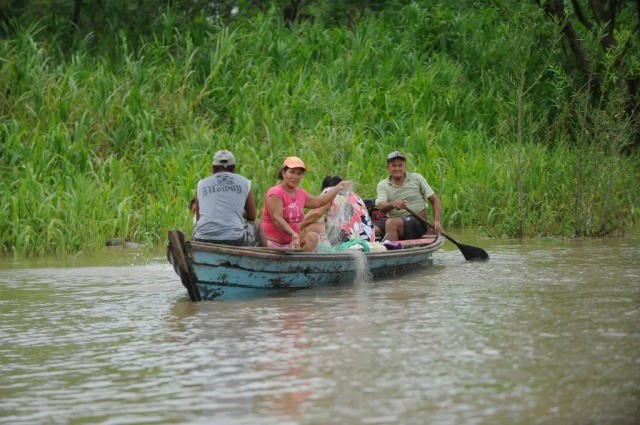Água Camelo guarantees access to drinking water in communities, from the outskirts of cities to the interior of the Amazon
Through partnerships with large companies and organizations, young entrepreneurs bring innovative equipment and drinking water to vulnerable locations
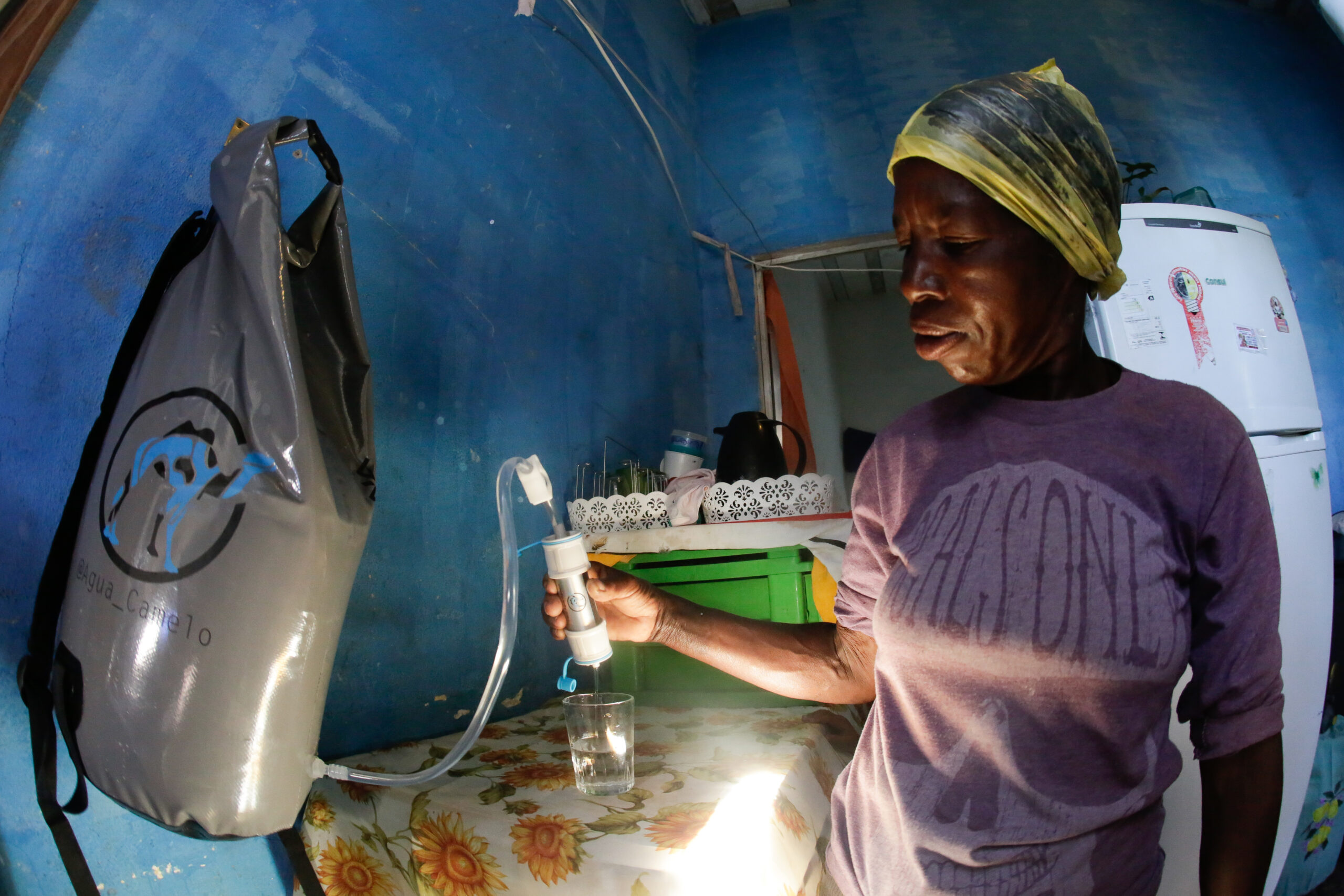
Three young people from Rio de Janeiro were still studying Design at PUC when they realized that the difficulty of accessing water in the city’s communities could be resolved with market strategies. What was supposed to be a college project became Água Camelo, a social impact business that brings clean water to vulnerable locations through partnerships with large companies and organizations.
In action since 2020, the business surprises people wherever it goes. With powerful water filters attached to backpacks, they have already benefited more than 50 thousand people, from the outskirts of cities to the interior of the Amazon. The first community to be impacted was Jardim Gramacho, in Rio de Janeiro. Then, with the pandemic, kits were delivered to the city’s favelas as a tool to mitigate the impacts of Covid-19, which generated wide visibility in the media.
Co-founder Rodrigo Belli says that, when he started the project in college, he had no idea what a social enterprise was. So, he studied in depth the process of informal urbanization in Rio de Janeiro. “I started to visit these territories, understand the difficulties and realized that access to water, among all the other difficulties, was the most ignored problem in the favelas”, he recalls.
Água Camelo
Rodrigo Belli was touched by what he saw in the communities and said he would go all the way to turn the idea into a business. He signed up for a business acceleration program, the Shell Youth Initiative, and studied Product Design at Parsons College in New York, United States. Thus, he managed to improve the Minimum Viable Product.
When he returned to Brazil, he distributed some kits in the communities of Rio de Janeiro. And, amid great publicity in the media, he founded the company alongside two other partners, João Piedrafita and Daniel Leite. “There was a note in the newspaper O Globo about the kits we were distributing in the favelas and we had a media avalanche. We gave interviews to more than 30 media outlets, then my two partners and I founded the company. In the first four months, we delivered almost 500 kits in seven states across the country”, says Belli, now the CEO of Água Camelo.
With this, Belli received recognition from Forbes Under 30 in Architecture, Design and Urbanism and Água Camelo was among the finalist companies in several awards, such as the Prêmio Empreendedor Social do Ano, from the grupo Folha, and the Agência Nacional das Águas, both from 2023. Today, the startup is considered a leader in access to treated water for populations in vulnerable situations, mainly in the interior of the Amazon, a region abundant in water, but which suffers from a lack of infrastructure and treated water services.
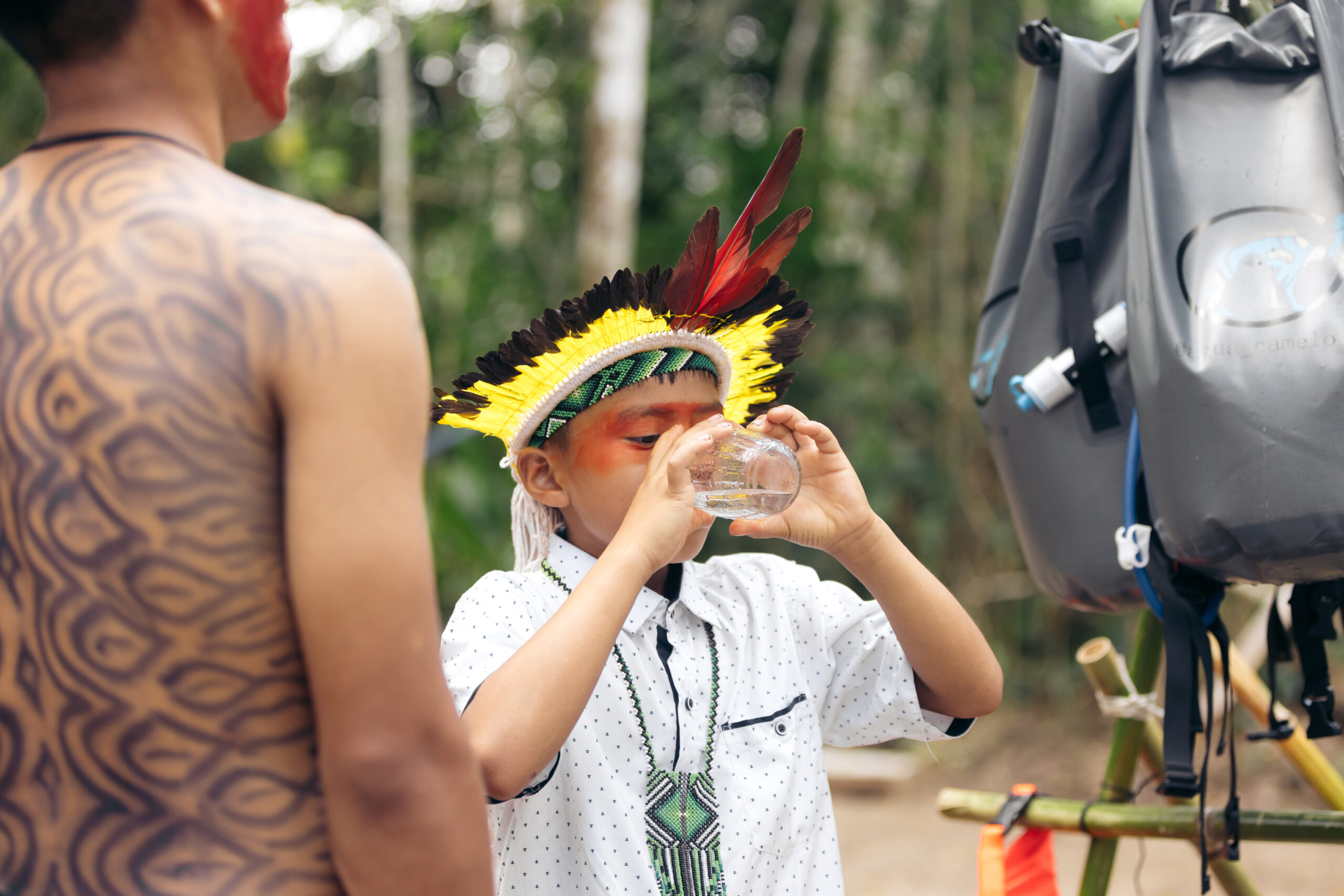
Social Impact Business
Currently, Água Camelo is present in 14 states in Brazil. To distribute water supply and filtration equipment to communities, managers first establish contact with local organizations and leaders, such as Central Única de Favelas (CUFA), Gerando Falcões, Coletivo Papo Reto, indigenous agents, etc.
“We always form partnerships with organizations and people from the community who are already present in the territory, because they have the trust of the population, knowledge about the territory, and know who really needs access to water and what needs to be done for the project to happen”, explains Belli.
In addition, they form partnerships with humanitarian organizations, such as Unicef, Humanitas, USAID and Visão Mundial. At the same time, they associate with major brands, such as Ambev, Coca-Cola and Nestlé. “We do not see our work as a matter of philanthropy, but rather as a market failure, because there is a consumer market, there is a need, and we created a solution for it”, he highlights.
Market strategy
The partnership with brands takes place through Corporate Social Responsibility programs and ESG principles. “Nowadays, we have a very marketing bias. We understand that we can be an excellent tool for achieving ESG and CSR goals, because we are able to develop the entire project based on the demand of our customers and territories”, says the CEO.
Therefore, to evaluate the impact that Água Camelo promotes, they developed their own methodology that quantifies and qualifies the results of activities in communities. This data is passed on to customers, allowing them to achieve their corporate governance goals and social and environmental practices.
“Often, we manage to bring our clients an intangible gain. Because of our work with the Yanomâmis, for example, we managed to get a two-minute article in Jornal Nacional, where we were wearing the sponsor’s shirt, which is Ambev/Ama. Imagine how many millions they would have to spend if it was a two-minute commercial on national television?”, assesses Belli.
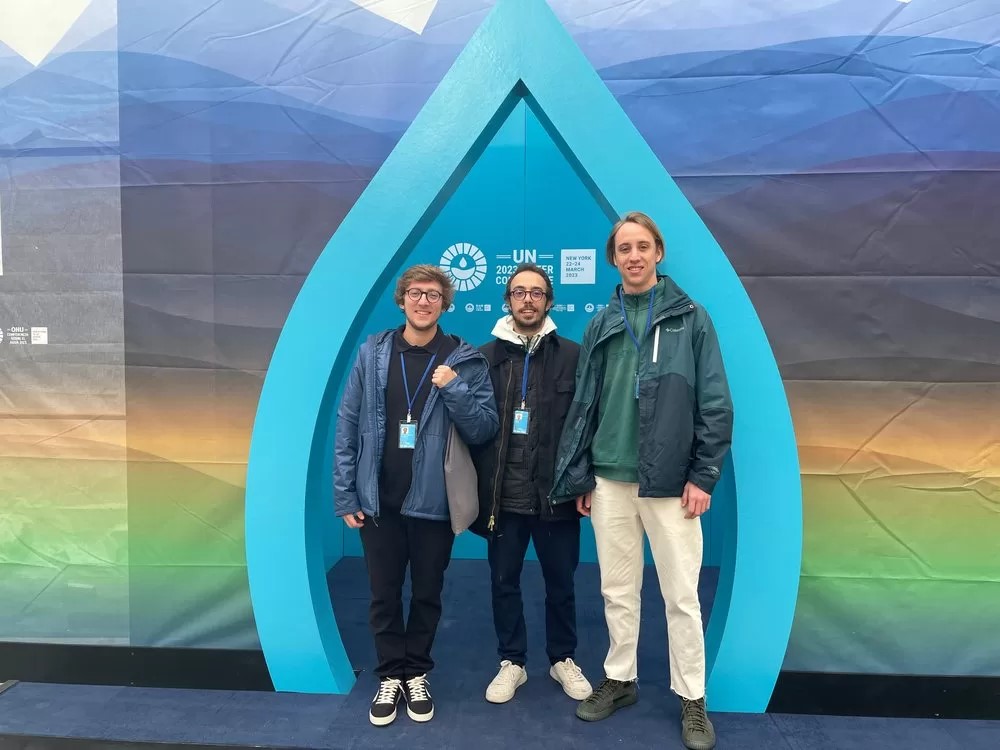
Access to drinking water
The social impact is undeniable, which has led to Água Camelo managers being invited to major events around the world. They have already spoken at the Conferência Mundial da Água, promoted by the United Nations (UN), and will participate in the Fórum Mundial da Água, which will be held later this year in Bali, Indonesia.
At these events, they are usually accompanied by their business partners, further increasing the visibility of the impact, both of the organizations and companies, and of the business itself. Unicef, for example, joined Água Camelo through an agreement with Coca-Cola and Ambev/Ama, which guaranteed the installation of water filters during the humanitarian crisis that devastated the Ianômami Indigenous Land.
“We managed to bring two giant competitors to the market, who came together to generate a common benefit for society through our tool. We also brought Unicef to make up this pool. We are the ones who articulate this movement”, he states.
In addition to collecting and analyzing water quality in the locations where it operates, Água Camelo also develops an education process about water quality. “Often, people don’t realize that the diarrhea they or their child is having is due to the water. That’s why we do tests, to prove that water can be transparent, translucent, appear perfect, but in fact it contains contaminants”, he points out.
“Of course, there is drinking water in nature, but we are talking about territories in extremely vulnerable situations, where there are many diseases and even deaths related to the consumption of untreated water”, he concludes.
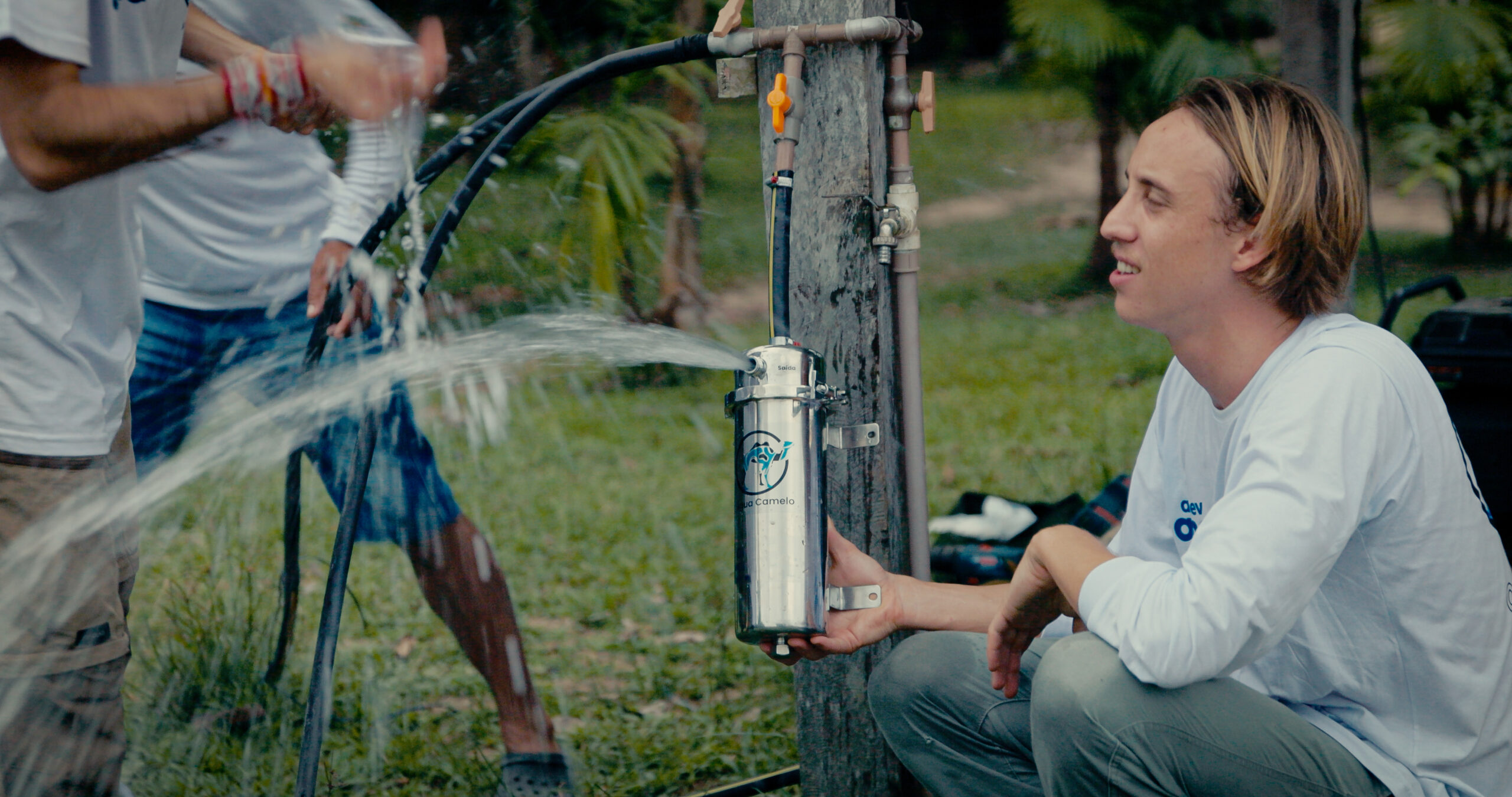
Want to support the cause?
To find out more about Água Camelo, visit the website or follow social media on Instagram, Linkedin and Facebook.
